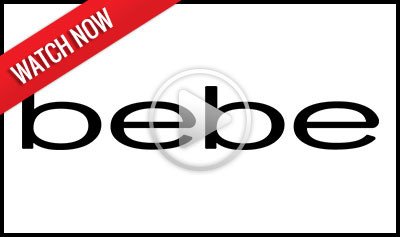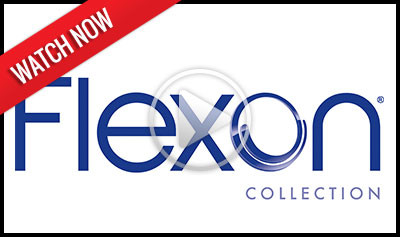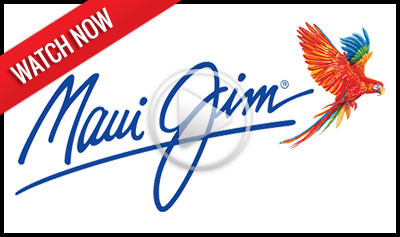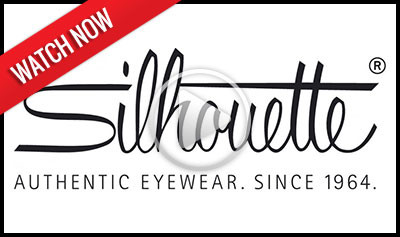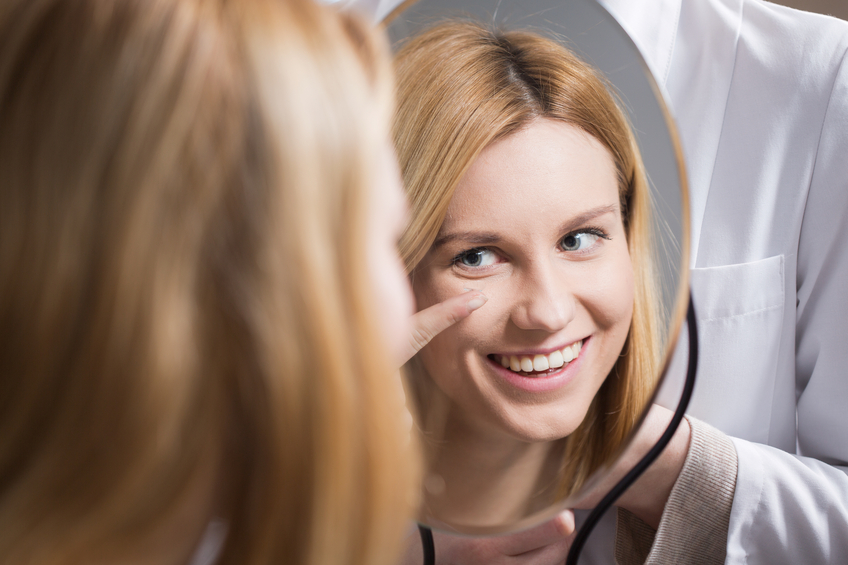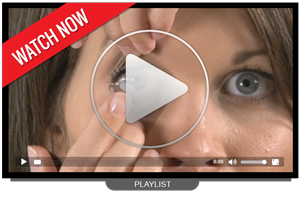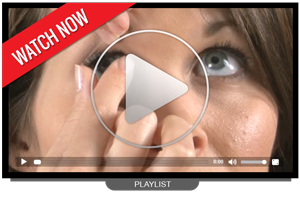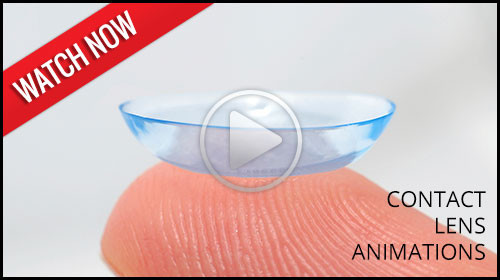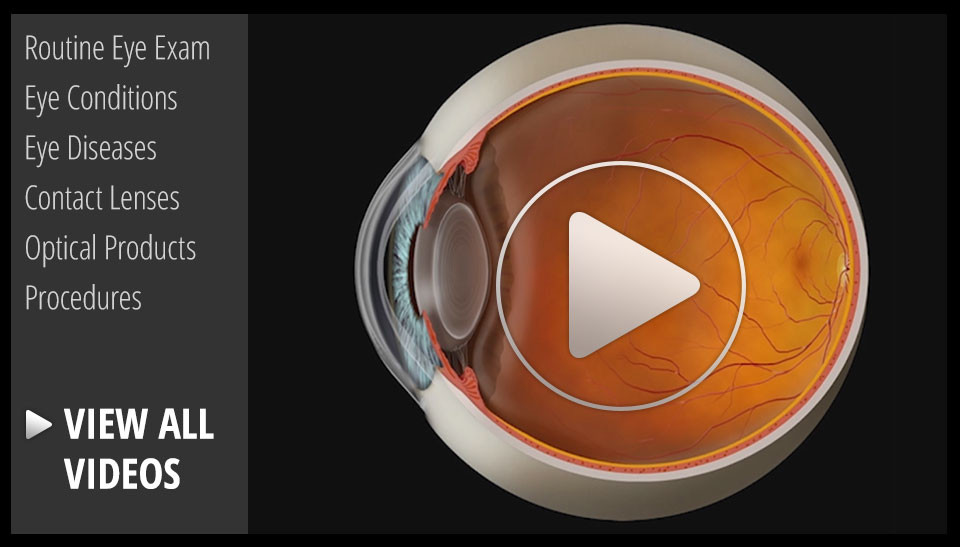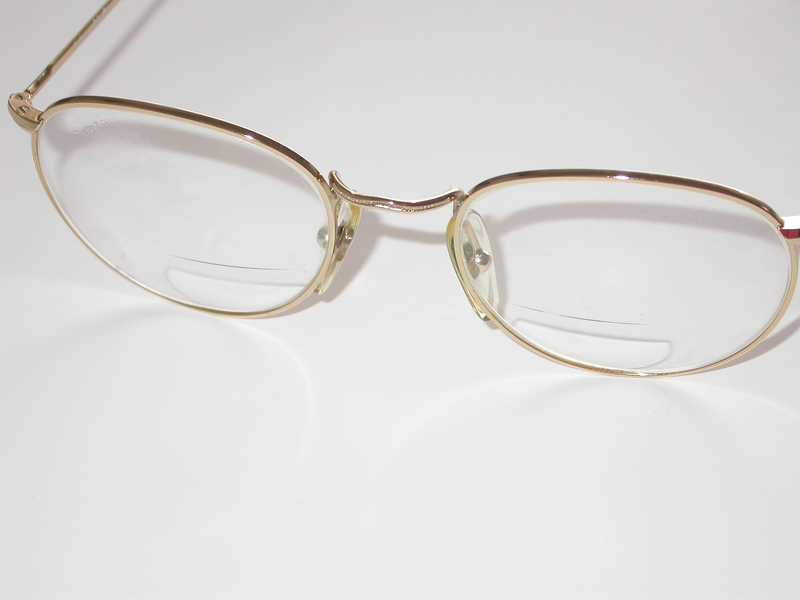Quick Links
Below are links to some of our most asked about resources.
Dry Eye Syndrome (DES), also known as Ocular Surface Disease (OSD), is the most common eye disorder, affecting about 40% of the population. It might sound like a simple condition, but it can be very complicated. It is caused when one or all of the components of the tear film are not in balance. Many things can influence dry eyes, such as health conditions, medications, and computer usage.
Many people have used artificial tears for years but without relief. It is essential that the underlying cause of the dry eye be diagnosed in order to prescribe a specific and effective treatment that brings relief. We pride ourselves on our very advanced equipment specific to diagnosing dry eye. Once the diagnosis is confirmed, our doctors will discuss all options with you and create a treatment plan for you, specific to your type of dry eye.
Dry Eye is abnormal; patients should not be forced to accept this condition as a normal part of life. There are many treatments available. Some of which are simple and might include warm compresses, tear gels, or prescription drops. Other common but more involved treatments include punctal occlusion, oral prescriptions, and vitamins. Advanced treatments include meibomian gland treatment procedures, amniotic membrane treatments, and blood serum drops.
Our Dry Eye Equipment: Diagnosing the Cause
At Bennett EyeCare Midwest, we use cutting edge equipment for the diagnosis of Dry Eye Disease. The Antares is used to help us determine the cause of your symptoms. It allows us to take high-resolution images and videos of the front of the eye and the meibomian glands within the lid. The Antares also evaluates how quickly the tears break up between blinks and shows any dry patches as they appear on the otherwise clear cornea. At the completion of all
individual tests, a comprehensive report is available to show you a description of each test and how your eyes performed.
Our In Office Dry Eye Treatments
OptiLight IPL (Intense Pulsed Light therapy) is an innovative treatment for ocular rosacea and dry eye. Initially found to be beneficial for treating facial rosacea for the past 20 years it has been more recently used in the dry eye field. Countless studies show its effectiveness at reducing fine ocular rosacea along the upper and lower lid margins. Minimizing these pro-inflammatory vessels in the eyelids reduces the expression of toxic mediators that cause further destruction of the oil glands in the eyelids. Utilizing technology is a game changer in treating ocular surface disease and dry eye. Bennett EyeCare Midwest is one of the only optometric practices in the area offering this cutting edge technology and seeing the wonderful results.
OptiLight+ Radio Frequency works by stimulating the meibomian glands (the oil producing tear glands reside along the upper and lower eyelids). These glands become blocked over time and lose their ability to produce the rich oil layer of the tear film. When this happens the eyes start to feel dry, irritated, burning and are often red. Over time these plugged glands can lead to atrophy (death of the glands), lid laxity, ocular surface disease and dry eye. As this condition worsens it can impact the ability to see clearly.
This non-invasive treatment utilizes radio frequency technology to safely and effectively treat dry eyes and dermatochalasis/droopy eyelids (also giving patients a smoother, healthier-looking appearance). Best of all, there is no surgery or down time!
At Bennett EyeCare Midwest-Kearney, our professional eye care staff will be happy to assist you with your vision needs.
We have treatment options available for everyone. Whether you are interested in making an appointment for a LASIK consultation, have cataracts, need an annual eye exam, or just need glasses, we can help!
Contact us today to begin scheduling an appointment using the form below, or call us directly at (816) 628-4401.
How can we help you?
Reviews
At Bennett EyeCare Midwest-Cameron, our professional eye care staff will be happy to assist you with your vision needs.
We have treatment options available for everyone. Whether you are interested in making an appointment for a LASIK consultation, have cataracts, need an annual eye exam, or just need glasses, we can help!
Contact us today to begin scheduling an appointment using the form below, or call us directly at (816) 632-7979.
How can we help you?
Reviews
At Bennett Eyecare Midwest, your vision is our primary concern. We offer vision correction for eye diseases and disorders which prevent you from enjoying the world around you. We specialize in treatment of eye diseases such as Dry Eye Syndrome, conjunctivitis, and cataracts. We also can effectively correct vision conditions, such as myopia (near-sightedness), hyperopia (far-sightedness), and presbyopia.
Our vision correction services aren't just about clear vision - they're about healthier vision. That's why we offer a variety of treatment options, including glasses, contact lenses, laser vision, and medical therapy.
We are happy to provide you with some basic information about various vision correction options that are available at our practice. Select from the following list or scroll down the page to learn more.
For more information, please call or email our office.
Child Vision and Learning
Did you know that 80% of everything a child learns, understands, and remembers is acquired through his or her visual system? Vision is very important in the learning process. What's worse is that one in four children have undiagnosed vision problems that affect their learning. Sometimes the problem is misdiagnosed as ADD (attention deficit disorder), ADHD (attention deficit hyperactivity disorder), or dyslexia.
It is important that children receive comprehensive visual exams starting as early in life as possible. Vision screenings at school are not sufficient as a basis for diagnosing vision problems. A comprehensive exam may find a visual problem missed during screenings, and your eye doctor can recommend treatment.
Your child may suffer from a visual problem if they exhibit any of the following characteristics:
- struggles with reading
- grows tired or frustrated with reading
- can't sit still or stay at a task for any length of time
- reverses words, numbers, or letters
- has difficulty remembering the spelling of words
- frequently loses their place, skips words, or skips lines of text while reading
- has poor reading comprehension
- has shown no improvement from medication or tutoring
Children suffering from uncorrected vision problems may face many barriers in life - socially, academically, and athletically. Make sure your child's vision is developing well.
Refractive Procedures
What are Refractive Procedures
Refractive procedures manipulate the eye to improve vision. Though there are several types of refractive procedures, the most popular is known as LASIK (laser assisted in situ keratomileusis). LASIK involves reshaping the cornea using incisions and lasers. An incision creates a flap which is folded back. Lasers are then used to reshape the middle layer of the cornea and correct the vision. The flap is folded back and allowed to heal, resulting in much clearer vision.
Is LASIK For Me?
Not everyone should consider a LASIK procedure. Candidates should be over 18 years of age. If you are pregnant, nursing, or suffering from a number of diseases, you probably are not eligible for LASIK. You are also not eligible if your prescription has changed a great deal over the past year. Talk to your eye doctor about LASIK. They will be able to assess your eligibility, the risks you may encounter, and they can recommend how to move forward.
Is the Procedure Safe?
In rare cases, there have been complications that have arisen after the procedure, including droopy eyelids, constant discomfort or the inability to wear contact lenses. In even rarer cases, there have been complications during the procedure. However, as technology improves, there will likely be a decrease in these instances.
Few things affect the quality of your life more than your eyes. Please don't put them at risk! Start off right by seeing an eye care professional who provides full-service care in assessing your medical needs, your lifestyle, and the highest quality contact lenses available to meet your needs, and proper training to ensure great vision.
It is important to remember that contact lenses are prescription medical devices. Various brands are designed and manufactured differently. The selection of a particular contact lens needs to be based on your vision problems, prescription, eye health, comfort requirements, lifestyle, age and physiological factors like tear flow. We'll discuss the different lens types and brands with you and advise you about the lens choices that are best for your eyes. Because everyone's eyes and vision needs are different, contact lenses are available with varying schedules for removal and replacement. We'll teach you how to properly clean and wear your new contact lenses to maximize vision and minimize potential risks.
At Bennett Eyecare Midwest we make sure that vision correction not only helps you see better, but also helps you feel better. Contact lenses aren't right for everyone, but they may be right for you. Even if you have astigmatism or need bifocal lenses, we may have a solution. Your evaluation will include:
- A look at your vision history
- An examination of your corneas
- A consultation session with one of our doctors, including recommendations and options
- Evaluation of Visual Acuity with your current contact lenses
- Determine if there should be any contact lens changes
- Assessment of the fit of your current contact lenses
- Microscopically evaluate the health of your corneas (the surface of your eyes)
- Measure the shape of your corneas
- Review the results and discuss options
Our doctors specialize in contact lens care, with special emphasis on hard-to-fit cases and solving problems current contact lens patients may be experiencing.
Call us today for a contact lens evaluation. Enjoy the freedom contact lenses provide!
Our eye health evaluations are more than just vision correction!
Vision exam
Did you know that your eyes reveal insights regarding your overall health? In fact, your eyes provide early detection for many different diseases that can affect more than just your vision! That's why we routinely perform tests that look for signs and symptoms of many different diseases, not just eye diseases, during your regularly scheduled eye health evaluation.
Illnesses that may be discovered early on through signs in your eyes include high blood pressure, diabetes, and even heart disease. That's why it's so important to leave your total eyecare to professionals. We feel it's important to review your family history then monitor and watch for signs of possibly inherited diseases or illnesses as another precaution.
Here's what we check during your routine eye health evaluation:
We start by checking your eyesight to ensure that you have the best possible vision you can. If a change in lenses is indicated, we have a fully staffed optical department that can help you with the latest styles and fashions of eyewear available.
We also check your intraocular pressures in each eye. Increased ocular pressures are a sign of glaucoma. eye examEarly detection of glaucoma is crucial to prevent the loss of sight.
During the exam we also evaluate your external eye health, checking for any growths, infections, drooping of eyelids, or excessive watering. We also evaluate your eye muscle motility to make sure that both eyes are working together and your binocular visual field to check your peripheral vision.
When the doctor performs the slit lamp examination, he is examining your cornea (the transparent front segment of the eye that covers the iris and pupil), the anterior chamber (fluid filled space between the iris and innermost corneal surface), the conjunctiva (thin transparent mucous membrane that covers the eye and the inner surfaces of the eyelids) and the lens (which does the focusing). This part of the examination can reveal cataracts, dry eye syndrome, allergies, infection, and many other conditions.
Dilation of the pupils may be necessary to check for retinal disorders, diabetic eye disease, macular degeneration, and more. If laser treatment is indicated, we can help guide you throught the process.
Our eye health evaluations are the best you can find!
Many bargain eye care providers are interested only in volume and getting patients in and out of the office quickly. The doctors of Bennett Eyecare Midwest care about quality above everything else. We want to make sure your vision is the best it can be and that your eyes are healthy. That is why we offer comprehensive eye health evaluations and a variety of treatment options that are performed in our office, along with the necessary follow-up to closely monitor your progress.
Have you ever wondered why your eyes must be dilated for an exam? Find out why it's so important to have your pupils dilated.
Do you think of getting your eyes dilated a nuisance? You're not alone. Most people feel that way. Maybe you've never really understood just why we have to put those annoying drops in your eyes. Here's your chance to find out just why it's so important to be dilated.
Our doctors start your eye exam with a thorough examination of your lids, lashes, conjunctiva, sclera and cornea, all which are the external surfaces of your eye. Using a microscope, or slit lamp, the doctor can get a closer look. When a light shines into your pupil, it constricts or becomes smaller. This is where the dilating drops come into play.
Dilating drops work to keep the pupil widely open so that the doctor can get a much better view of your retina, optic nerve, and vessels in the back of the eye. This is a very important part of an eye health evaluation. From the simple action of putting dilating drops in your eyes, the doctor can gather a lot of important information about your eyes. Diabetes and hypertension (high blood pressure) are sometimes first discovered during a dilated examination.
Here are a few things you can do to make your dilated exam more pleasant and comfortable:
- Try to avoid planning activities after your appointment that require very clear, crisp vision. Dilation often affects your vision, especially your near vision.
- After dilation, your eyes will be much more sensitive to the light. Bring along a pair of dark sunglasses for the ride home.
- If you think that you may have trouble driving home after dilation, bring a friend or family member to drive for you.
Today's health care environment has become more confusing and complex. Understanding your health insurance and vision benefit is not as easy as it once was. Our practice has provided this information to untangle and clarify many misconceptions about third party care and your vision.
It is important for all patients to understand a fundamental principle of the third party mechanism. Unless your provider (doctor or health care facility) specifically takes assignment of benefits, the patient is ultimately responsible for any non-covered services and their charges. The insurance relationship is between the patient and the insurance company not between the patient and the provider.
Many common vision insurance programs only cover the vision part of the overall eye health examination. There are two distinct and important elements to every visit to our practice. First, the most important aspect of your visit today is to insure quality of life by providing you with a comprehensive, thorough medical examination of your visual system. Many eye diseases that affect your vision have little or no symptoms until the problem has become sight-threatening. Routine eye health examinations are critical to prevent debilitating eye disease. Secondly, each comprehensive medical eye exam will include a vision component to analyze and prescribe, if necessary, eyewear or contact lenses to correct your vision.
It may be necessary for your doctor to perform additional special testing to insure the overall systemic health of your eyes. Some of this additional testing may not be covered as part of your vision benefit. Payment for these additional special tests is the financial responsibility of each patient.
The following is a summary of the major Vision Insurance programs. Hopefully, this information will be helpful to all patients in choosing proper eyewear, contact lenses and eye care for themselves and their families. Please feel free to ask our Insurance Benefit Coordinator if you have any questions about your specific vision insurance or medical coverage during your visit today.
Vision Service Plan (VSP)
In most cases, VSP will fully cover your eye health and vision exam. In some cases there may be a co-pay on the part of each patient. The co-pay must be paid at the time of service. The eyewear component of the Vision Service Plan contributes or subsidizes the purchase of your eyewear. Each specific Vision Service Plan subsidizes eyewear purchases at different levels. The Vision Service Plan is not an entitlement plan and patients are free to choose any frame or lens option recommended by their doctor. Our professional optical staff will be happy to determine if any out-of-pocket costs will be incurred by the patient.
Medicare
Our practice fully participates in the Medicare program. We accept assignment of benefits on behalf of each eligible patient. The eye health examination is a fully covered service under the Medicare program. However, as mandated by Federal law, the refraction part of the vision section of your exam is a non-covered service. Each Medicare patient will be charged $35 for the refraction. This charge must be paid for at the time of service during your visit. Unless, immediately following cataract surgery, there is no longer an eyewear benefit under the Medicare program. The purchase of frames, lenses, lens options and coatings is the responsibility of each Medicare patient.
Hopefully, this information will give you a better idea of the vision benefit you are using today. Our insurance coordinator is available to answer any questions. Due to the large number of different Vision Insurance Benefit Programs, it is impossible to know the specific details and reimbursement policies of each. If our doctors do not participate in your Vision Benefit Program, we will be happy to provide you all the necessary forms and documentation for you to submit to the carrier for reimbursement.
Thank you for your understanding and patience.
We accept cash, personal checks and the following credit cards:
- American Express
- Discover
- MasterCard
- Visa
We at Bennett Eyecare Midwest are Committed to...
- Outstanding Personal Healthcare
- Quality in Services and Products
- Providing State of the Art Testing and Education
...Assuring Visual Excellence and Enhancing Your Quality of Life.
Since 1909
At Bennett EyeCare Midwest-Blue Springs, our professional eye care staff will be happy to assist you with your vision needs.
We have treatment options available for everyone. Whether you are interested in making an appointment for a LASIK consultation, have cataracts, need an annual eye exam, or just need glasses, we can help!
Contact us today to begin scheduling an appointment using the form below, or call us directly at (816) 229-3001.
How can we help you?
Reviews
At Bennett EyeCare Midwest-Platte City, our professional eye care staff will be happy to assist you with your vision needs.
We have treatment options available for everyone. Whether you are interested in making an appointment for a LASIK consultation, have cataracts, need an annual eye exam, or just need glasses, we can help!
Contact us today to begin scheduling an appointment using the form below, or call us directly at (816) 858-2522.
How can we help you?
Reviews
At Bennett EyeCare Midwest-Liberty, our professional eye care staff will be happy to assist you with your vision needs.
We have treatment options available for everyone. Whether you are interested in making an appointment for a LASIK consultation, have cataracts, need an annual eye exam, or just need glasses, we can help!
Contact us today to begin scheduling an appointment using the form below, or call us directly at (816) 781-3442.
How can we help you?
Reviews
Our practice proudly serves the Kansas City, MO area, including Gladstone (North Oak), Liberty, Platte City, Blue Springs, Kearney & Cameron with a tradition of quality service and a friendly staff.
Drs. Bednar, Tischinski, Rondeau, Broyles, Fritz, and Crabtree take great pride in offering every patient the absolute best in vision care--whether through fitting them with eyeglasses or contact lenses, diagnosing cataracts, glaucoma, and other eye diseases, or recommending LASIK and other eye surgery procedures.
Our expert optometrists and experienced staff will take the time to answer all of your questions, explain treatment options, and provide the highest quality eye health treatments available.
Built on the foundation of patient convenience and satisfaction, Bennett EyeCare Midwest serves all of your family’s eye care needs under one roof. Come visit our modern facility and friendly doctor and staff!
At Bennett EyeCare Midwest you will find a caring team of professionals dedicated to providing high-quality personalized eye care for the whole family. We value our patient relationships and strive to improve your quality of life and vision wellness through uncompromised service and state-of-the-art technology. Drs. Bednar, Tischinski, Rondeau, Broyles, Fritz, and Crabtree and their staff are a close-working team dedicated to meeting the vision care needs of the people of Kansas City, MO area, including Gladstone (North Oak), Liberty, Platte City, Blue Springs, Kearney & Cameron.
Our friendly receptionist is the first smiling face you will see when you visit our office. To complement our modern facilities, our knowledgeable visual testing team work with the latest and greatest technologies to best assess the health of your eyes. Next you will meet your highly-skilled optometrist, who will complete the exam by inspecting your eyes, discussing eye care options, and answering your questions. When you visit our office, our goal is that you will leave completely satisfied and confident with your doctor, staff and services!
We invite you to refer your friends and family to our comprehensive website and our practice. If you have any questions, please feel free to contact us at our office at .
Bennett Optical, now Bennett Eyecare Midwest (BECM), is one of the largest primary eyecare practices in Kansas City and can trace its roots back almost 100 years (originally opened in 1909). Bennett Optical operated as a stand-alone practice for many years and at various locations North of the river until 1996.
In 1996 Bennett Optical merged with Eyecare Midwest. Eyecare Midwest was an ophthalmology practice with a 30-year history of its own North of the river. From 1996 to 1998 Bennett Optical and Eeyecare Midwest provided primary eyecare, eyewear, and surgical eyecare. During this period of time the practice was located in Gladstone and also acquired locations in Liberty and Platte City, Missouri.
In 1998, Novamed Eyecare Management was hired for management responsibilities of Eyecare Midwest and Bennett Optical.
On January 1, 2002 Drs. Bennett and Bednar officially separated their practices from Novamed and created their current practice, Bennett Eyecare Midwest.
Today, we pride ourselves in not only being one of the largest eyecare practices but also being one of the best and most and most progressive eyecare practices in the Kansas City area. We provide comprehensive eye exams, contact lens services and materials, emergency eyecare, spectacles, and pre-operative and post-operative surgical eyecare to patients of all ages and means.
Few things affect the quality of your life more than your eyes--never put them at risk. Contact lenses are prescription medical devices. To make sure your eyes and vision stay healthy while wearing contact lenses, please follow these guidelines or the instructions recommended by your doctor.
Warning: Ocular complications and/or long-term corneal damage are the consequences of contact lenses that are worn longer than recommended. Oftentimes, your lenses will still feel fine even when you are over-wearing them. Do not wear your lenses overnight unless they are approved for extended wear and your doctor has discussed this with you. Overnight wear increases the risk of infection and other complications.
Wearing Schedule
It will take at least a few days for your eyes to get used to wearing contact lenses. The best way to insure maximum visual comfort and keep your eyes healthy is to patiently and faithfully adhere to this wearing schedule.
| Day | Gas Permeable Lenses | Soft Lenses |
|---|---|---|
| 1 | 4 hours | 6 hours |
| 2 | 6 hours | 8 hours |
| 3 | 8 hours | 10 hours |
| 4 | 10 hours | 12 hours |
| 5 | 12 hours | 12 hours |
- DON’T wear your lenses longer than 12 hours a day until your first follow-up visit with your doctor, unless the doctor has specifically told you otherwise.
- DON’T continue use of contact lenses if your eyes become red, irritated, painful, or if your vision gets worse while wearing lenses. Immediately take out the lenses and clean them. Let your eyes get back to normal and if the problem persists, contact our office.
- DON’T exceed the wearing times suggested, even if your lenses still feel comfortable. Studies have proven that the eye needs time to adapt to contact lenses, and your wearing schedule is based on those studies.
- DO always remove your contact lenses at least one hour before going to bed to allow for proper oxygen nourishment to the cornea.
- DO schedule and keep follow-up appointments with your eye doctor.
- DO wear your contact lenses for at least 4 hours the day of your follow-up appointment unless you are experiencing discomfort.
Please Note: If you complete your wearing schedule for a given day and take out your lenses for at least 2 hours, you can wear them the same day for another 2 to 3 hours after cleaning and disinfecting them.
Caring For Your Contacts
Deposits and infectious organisms, such as bacteria and viruses, can build up on the surface of all contact lenses. For this reason, it is very important to keep them clean and disinfected.
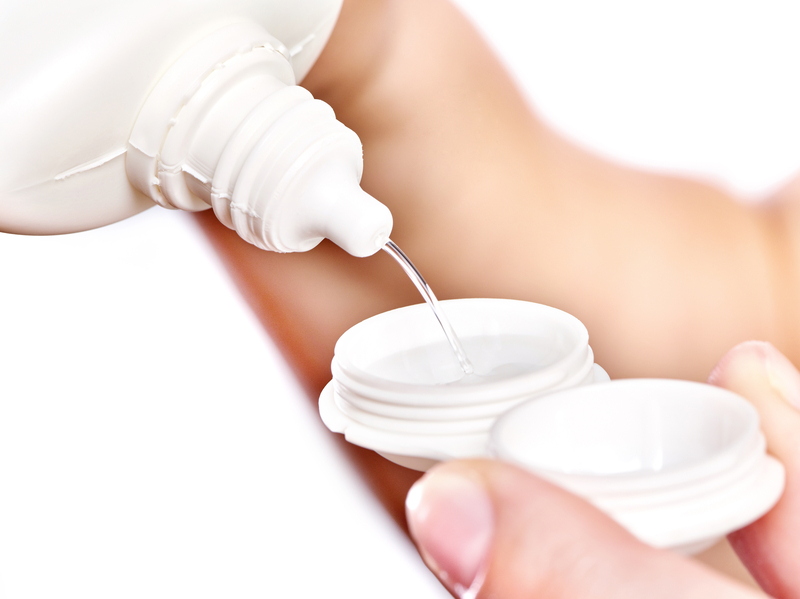 There are four steps in contact lens care--follow the care prescribed for your lenses:
There are four steps in contact lens care--follow the care prescribed for your lenses:
- Cleaning removes dirt, mucous, and other debris that gets on the lenses during wear.
- Disinfecting kills bacteria (germs) on the lenses. Disinfecting is essential to prevent serious eye infections.
- Rinsing removes the other solutions from the lenses and prepares the lenses for wear.
- Enzyming uses enzyme drops or tablets to remove protein and other deposits that build up over time on the lenses.
The best way to properly care for your lenses is to develop a care routine, then stick to that routine! Remember to:
- Follow the directions outlined by your eye doctor. Oftentimes instructions are also listed on the packaging or the package insert for the contact lens solutions prescribed for you.
- Multi-purpose solutions can be used for more than one step in contact lens care. Read the label to see which functions the solutions can be used for.
- Many solutions can not be used together, and not all solutions are appropriate for all types of lenses. Only use solutions recommended by your eye doctor, and check with your eye doctor if you want to switch brands.
- When you remove your lenses, they must be cleaned, rinsed, and disinfected before they are worn again.
- Enzyming and cleaning are not a substitute for disinfecting.
- Lenses that have been stored for more than 12 hours may need to be cleaned, disinfected, and rinsed again.
- Make sure solution containers are kept closed tightly, stored upright, and kept in a clean, dry, cool place when you are not using them. Keep your case clean and replace it every 2-3 months to prevent bacterial growth.
- Don’t touch container bottle tips to any surface to prevent them from becoming contaminated.
- Throw away expired solutions. (Look on the bottle for the expiration date!)
- Use new solution in your contact lenses case every day.
- Discuss with your eye doctor the care for your lenses if you wear them while swimming in a pool or hot tub.
- Only use approved rewetting drops for lubricating or wetting your lenses. Never place the lenses in your mouth.
- Do not use tap water to rinse soft contact lenses.
- Be careful with makeup, lotions, creams and sprays--consider putting on lenses before makeup and remove them before removing makeup. Also, water-based makeup is less likely to damage lenses than oil-based makeup.
Here’s what you need to watch for: redness, blurriness, light sensitivity. Remove your lenses if you are experiencing any of these 3 things. If your eyes have not returned to normal after 24 hours, please contact our office. If you have any change in vision, comfort, or irritation, immediately remove your lenses. If there is no improvement within a couple of hours, please contact our office.
Welcome to the Bennett EyeCare Midwest video learning center! Please call us if you have any questions about the conditions you see here.
At Bennett EyeCare Midwest-North Oak, our professional eye care staff will be happy to assist you with your vision needs.
We have treatment options available for everyone. Whether you are interested in making an appointment for a LASIK consultation, have cataracts, need an annual eye exam, or just need glasses, we can help!
Contact us today to begin scheduling an appointment using the form below, or call us directly at (816) 454-2020.
How can we help you?
Reviews
When it comes to vision care products, they are not all created equally! Across the eye care industry there is a large variance in quality and craftsmanship. We take pride in using a wide-range of top quality materials with great product support to provide you with the excellent eye care products. We meet regularly with manufacturer's representatives to make sure that we have the a great selection. Our value is in knowing what is available and what best meets your needs.
When considering where to purchase your eyeglasses, contact lenses, and sunwear, remember to consider the following. . .
Total Eye Health - Our office is part of this community. We want you to have sharp vision and great comfort with your glasses and contact lenses. The health of your eyes is our major concern. That is why we stand behind our products and services with great warranties, and a professional and well-educated team. Different prescriptions require certain frame styles and lens treatments in order for your glasses to perform well and look great. Our trained opticians can guide you through this process. Our dispensary has hundreds of frames from which to choose, including a large selection of children's frames. We can help you find the size, shape, and color of frame that is perfect for all family members. When it comes to contact lenses, we offer a full spectrum of products. Even if you have been told before that you cannot wear lenses, we may have a solution that is right for you.
Competitive Pricing - At Bennett EyeCare Midwest we offer competitive pricing, affordable eyewear packages, and multiple-pair savings. You are also welcome to take advantage of manufacturer rebate programs and special promotions through our office. Be sure to ask about our convenient contact lens direct shipping program.
Convenience - Your Bennett EyeCare Midwest offers a wide selection of products in our office as well as through custom orders. We use great quality materials and will courteously recommend eyewear and contact lenses that fit your lifestyle and fashion - all within your budget. Plus, you get to try on your frames before ordering--instead of just ordering online and hoping they work for your face and your prescription!
Lenses & Coatings
Contacts & Solutions
Sport & Sunwear
For many people, different lenses are needed for seeing at different distances. Bifocal lenses allow the wearer to look through two areas of the lens. One area focuses on distant objects. The other is used for reading. A little-known fact is that bifocals were invented by Benjamin Franklin, and his style of bifocals are still available today.
Most of the time the “reading” area is smaller, shaped like a sideways “D”, and found in the lower hemisphere of the lens. These bifocals are called line bifocals or flat-tops. If you are focusing on distant objects, you look through the top half of the lenses. To read a book, magazine, or newspaper, you look through the “reading” area. The Franklin style lenses are less common, and are split horizontally down the middle of each lens. One thing that is difficult about using bifocals is dealing with the line between the two vision areas. Fortunately, recent technologies have developed a new type of lens, called the no-line, or progressive, lens.
